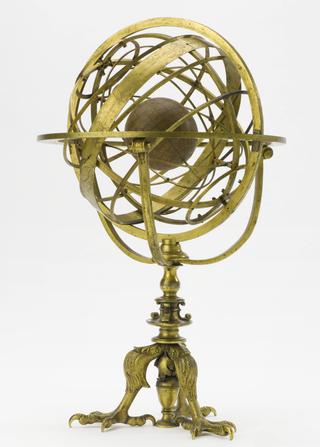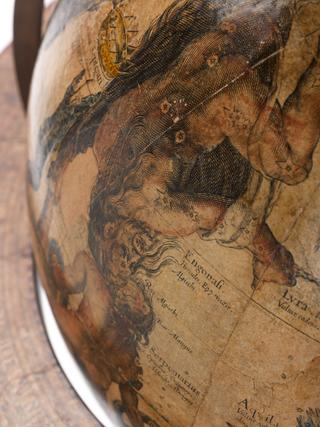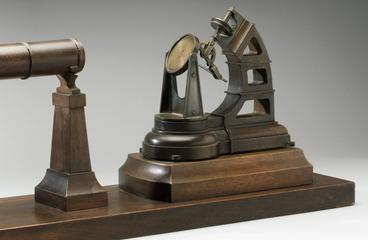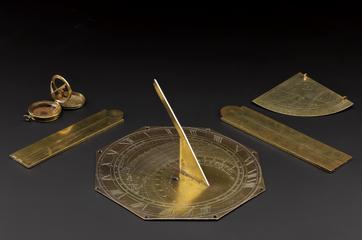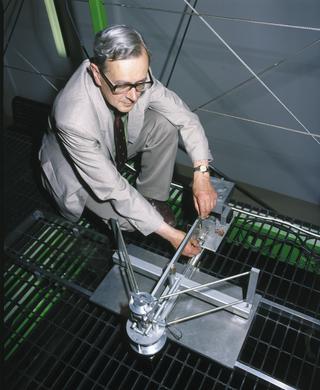
Colour print showing solar prominences




One of three colour engravings with window mounts of colour sketches showing ten views of solar prominences (Pl 8.), observed and drawn by Etienne Leopold Trouvelot in 1872 at the Harvard College Observatory.
Lithographic colour print issued by Harvard College Observatory in 1876, showing ten sketches of solar prominences. Drawn in 1872 by Etienne Leopold Trouvelot (1827-1895), a French artist, these red protuberances on the Sun are normally only visible at totality during a solar eclipse. They can be seen at other times using a spectroscope that is aimed at a tangent to the Sun with its split-jaws partly open. Prominences are massive eruptions of hydrogen gas, often larger than the Earth, which arch away from the surface of the Sun. Associated with its magnetic field, some violent flares called Coronal Mass Ejection can disrupt the Earth's radio communications and produce spectacular aurora displays.
Details
- Category:
- Astronomy
- Object Number:
- 1887-24/1
- Materials:
- paper
- Measurements:
-
overall ( mount): 460 x 355 x 1.5 mm
- type:
- prints, lithographs, sun, solar prominences and solar chromosphere
- credit:
- Normal School of Science (Astronomical Laboratory)
